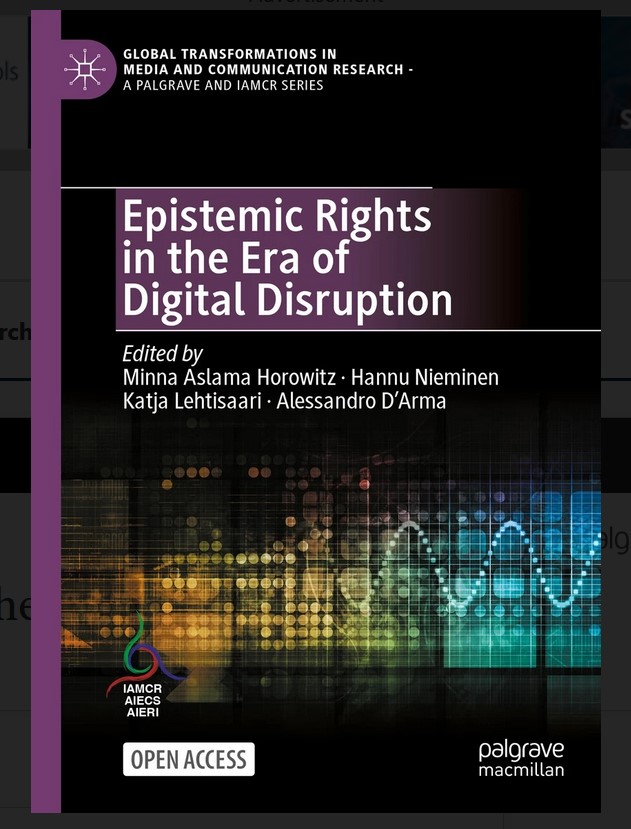In today’s complex era of digital disruption, citizens’ rights to obtain information and knowledge have become an increasingly pressing issue.
In a functioning democracy, citizens should be equally capable of making informed choices about matters of social importance. This includes citizens accessing all relevant information and knowledge necessary for informed will formation. These questions have been referred to as communication or digital rights.
However, recent digital disruptions have prompted scholars in the DECA research group – including TaRC leader Katja Lehtisaari – to question these terms. They argue that we need a more comprehensive term to grasp the multifaceted challenges of the current situation to citizens, organizations, and democratic structures as a whole.
They have coined a new term, ‘epistemic rights’, which features in their new book, Epistemic Rights in the Era of Digital Disruption (Palgrave, 2024), and take as their starting point the need for ‘epistemic equality’.
The contributors seek to showcase the history and diversity of current debates around communication and digital rights, as precursors for the need for epistemic rights – both as a theoretical concept and an empirically assessed benchmark.
The book highlights scholarship via academic case studies from around the world to feature different issues and methodological approaches, as well as similarities in academic and policy challenges across the globe.
The goal is to provide an overview of issues that depict challenges to epistemic rights, extract both academic and applied policy implications of different approaches, and end with a set of recommendations for advancing policy-relevant scholarship on epistemic rights.
This volume is intended as the first holistic response to an urgent need to address epistemic rights of communication as a central public policy issue, as an academic analytical concept, as well as a central theme for informed public debate.
This book is open-access, meaning everyone has free and unlimited access. It can be downloaded via the title link above. The volume has two chapters related to TaRC’s geographical areas of interest:
- Epistemic Violators: Disinformation in Central and Eastern Europe by Marius Dragomir and Minna Aslama Horowitz
- Right to Data Access in the Digital Era: The Case of China by Yik Chan Chin
Some of the project’s results are also discussed in a three-part podcast series available for free on Soundcloud.
If you are interested in the project’s results in the Nordic countries, the DECA group and the Finland Futures Research Centre (University of Turku) organise a webinar on Friday 26 January (9.00am–10.00am Helsinki time, GMT+2) that deals with the question of trust in the media in Denmark, Finland, Norway and Sweden.
In the webinar, project researchers discuss the results of two recent surveys on the topic: one done with editors-in-chief of Finnish media outlets and the other done with Nordic citizens aged 15 to 79. How do journalists and citizens view questions of trust in an era of disruption?
If you are interested in participating in the webinar, please sign up here by Thursday 25 January. The event is free of charge. Note that the event will be held in Finnish.

